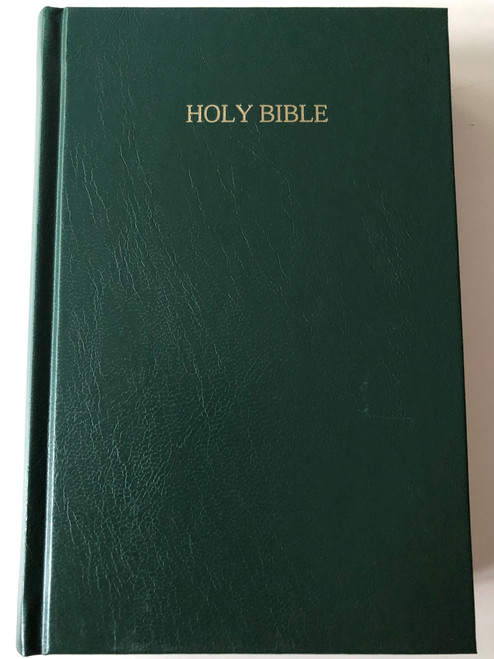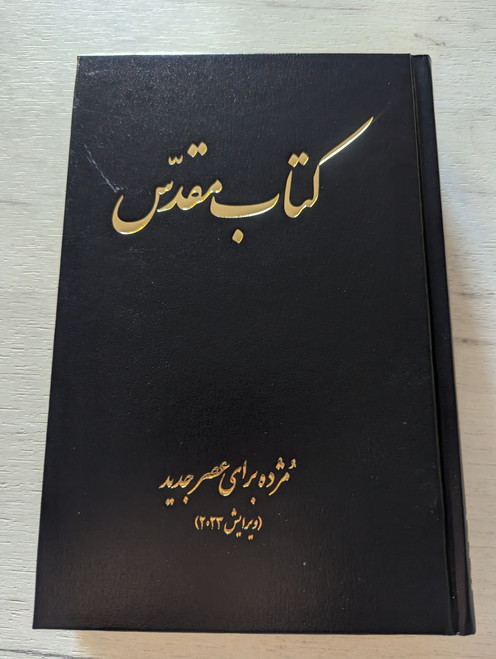Product Overview
The Knight in Tiger Skin: poem by Shota Rustaveli / Шота Руствелі / შოთა რუსთაველი ვეფხისტყაოსანი / Vityaz в тигровому шкірі / Hardcover 1984
Translation from Georgian by Panteleimon Petrenko
Introductory article by S. Tsaishvili
Illustrations by Yakov Nikoladze and others
Published in Tbilisi, Georgia: Merani, 1984. – 336 p.
Pages 336
Language: Russian
Made in G.S.S.R.
!!! Condition of this book is USED LIKE NEW !!!
The immortal poem "The Knight in the Panther's Skin" ვეფხისტყაოსანი is the most significant monument of Georgian literature of the XII century. For eight centuries, the people cherishes it in his memory, it sings to the accompaniment of chonguri peppered his speech with its sayings and proverbs. The name of the hero of the poem, knight Tariel, associated with many legends and folk songs, "The Knight in the Panther's Skin" - a poetic tale of a great friendship and great love.
Шота́ Руставе́ли (груз. შოთა რუსთაველი; ок. 1160/ ок. 1172 — ок. 1216 /после 1220, Иерусалим) — грузинский поэт XII века, автор поэмы «Витязь в тигровой шкуре», одного из величайших произведений грузинской литературы.
Though written in Georgian at the height of the pan-Caucasian empire of the Georgian Bagratids, according to the modern historian Stephen H. Rapp, The Knight in the Panther's Skin "was an expression of the Iranian/Iranic epic and not some genre of Byzantine literature". Rustaveli used a Persian model for writing The Knight in the Panther's Skin. In the work's prologue, the modern historian Nile Green explains, Rustaveli publicly declares his 1,600-quatrain epic, written in the shairi verse form, as a "Persian tale, translated into Georgian / Like an orphaned pearl, like a toy passed from hand to hand".
Georgian title ვეფხისტყაოსანი (vepkhistqaosani) literally means "one with a skin of vepkhi". The identity of the animal that it refers to is not certain and it can be a tiger, panther or leopard. In modern Georgian, it refers to the tiger. However, according to more modern research it would rather mean a panther. Similarly, the qualification of "knight" is not derived from the original title and its alternative translations exist, such as the "valiant" or simply a "man." The alternative English titles of the poem also are "Lord of the Panther Skin" and "The Man in the Panther's Skin".
The story can be divided into two parts: the first part is Avtandil's quest for Tariel, the titular "knight in the panther's skin", and the second part is Avtandil's quest for Nestan-Darejan, Tariel's love.
Within Georgia, the poem has been translated into other Kartvelian languages like Laz, Svan and Mingrelian.
Outside of Georgia, interest in the poem first appeared in 1802, when Eugene Bolkhovitinov published a verbatim translation of the first stanza of the poem into Russian. In France in 1828, Marie-Félicité Brosset made his first partial French translation. In the 19th century the poem saw full translations into Polish, German and Russian. In 1845, extracts were published in Russian, French and Armenian. Vahan Terian, a prominent Georgian-born Armenian poet, translated the prelude, which was first published posthumously in 1922. It was praised by Nicholas Marr. In 1912, Marjory Wardrop published the first English translation available. In 1968, a verse translation by Venera Urushadze was published in Georgia. It was also translated into modern Azerbaijani in 1978 by Dilara Aliyeva. In 2015, an English poetic translation by Lyn Coffin was published, combining literary achievement with academic precision.
Today, unabridged editions are available in many languages! Among the translations, the 1989 Esperanto version by Zurab Makaŝvili and the 2015 English version by Lyn Coffin are notable not only for faithfully reproducing the content of the poem, but also for preserving the poetic structure of the epic in shairi (rhymed stanzas of four sixteen-syllable lines).

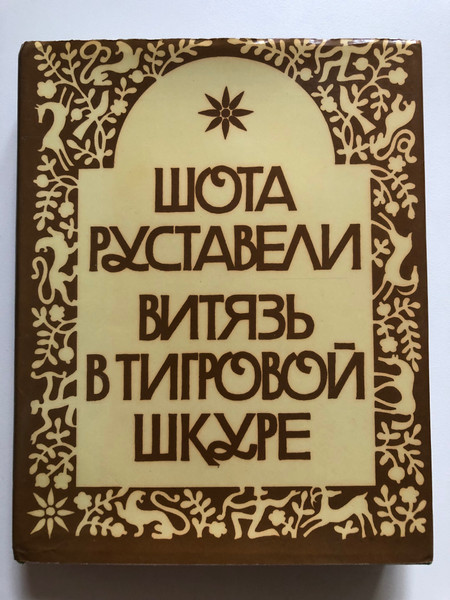

























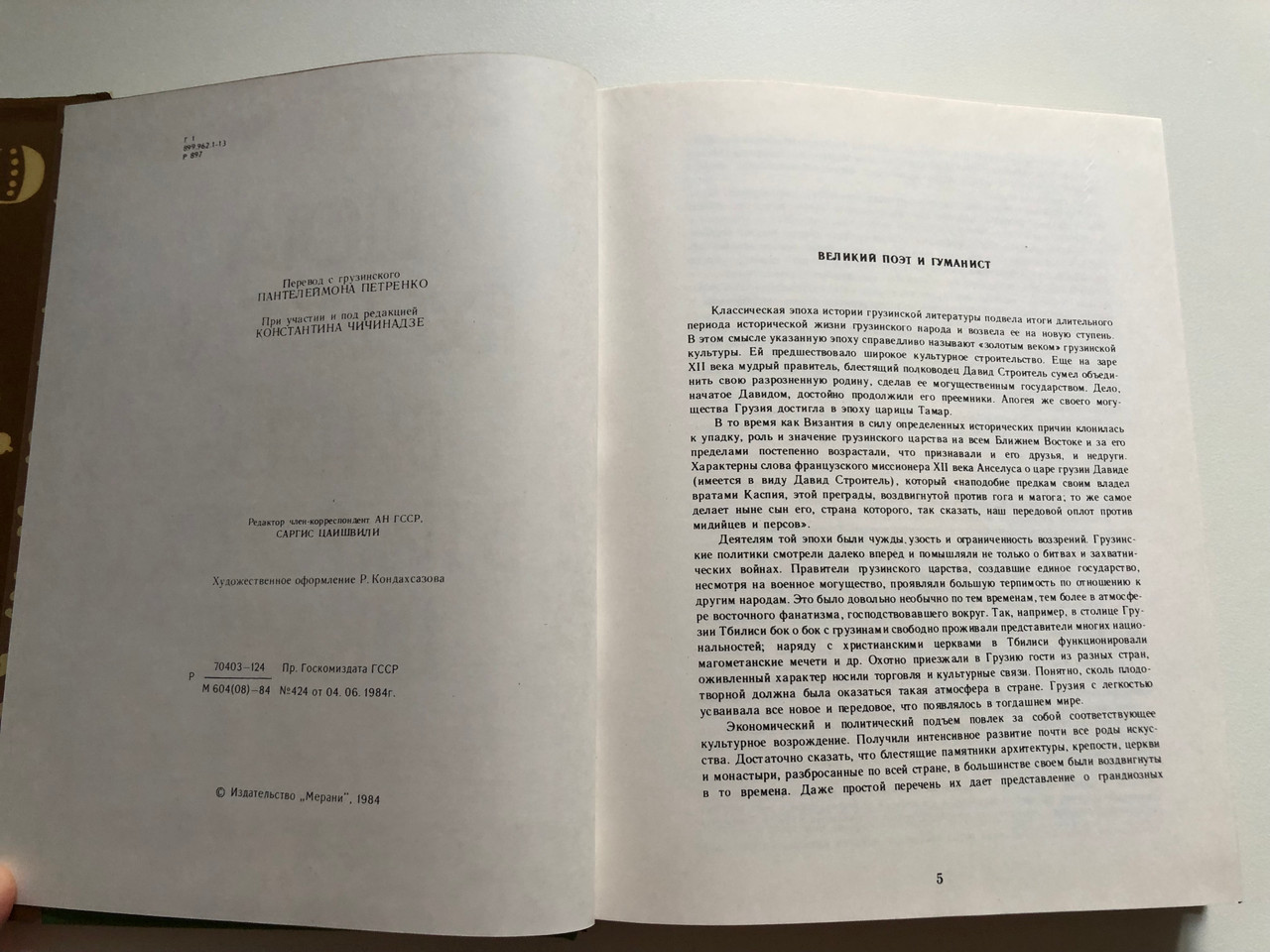




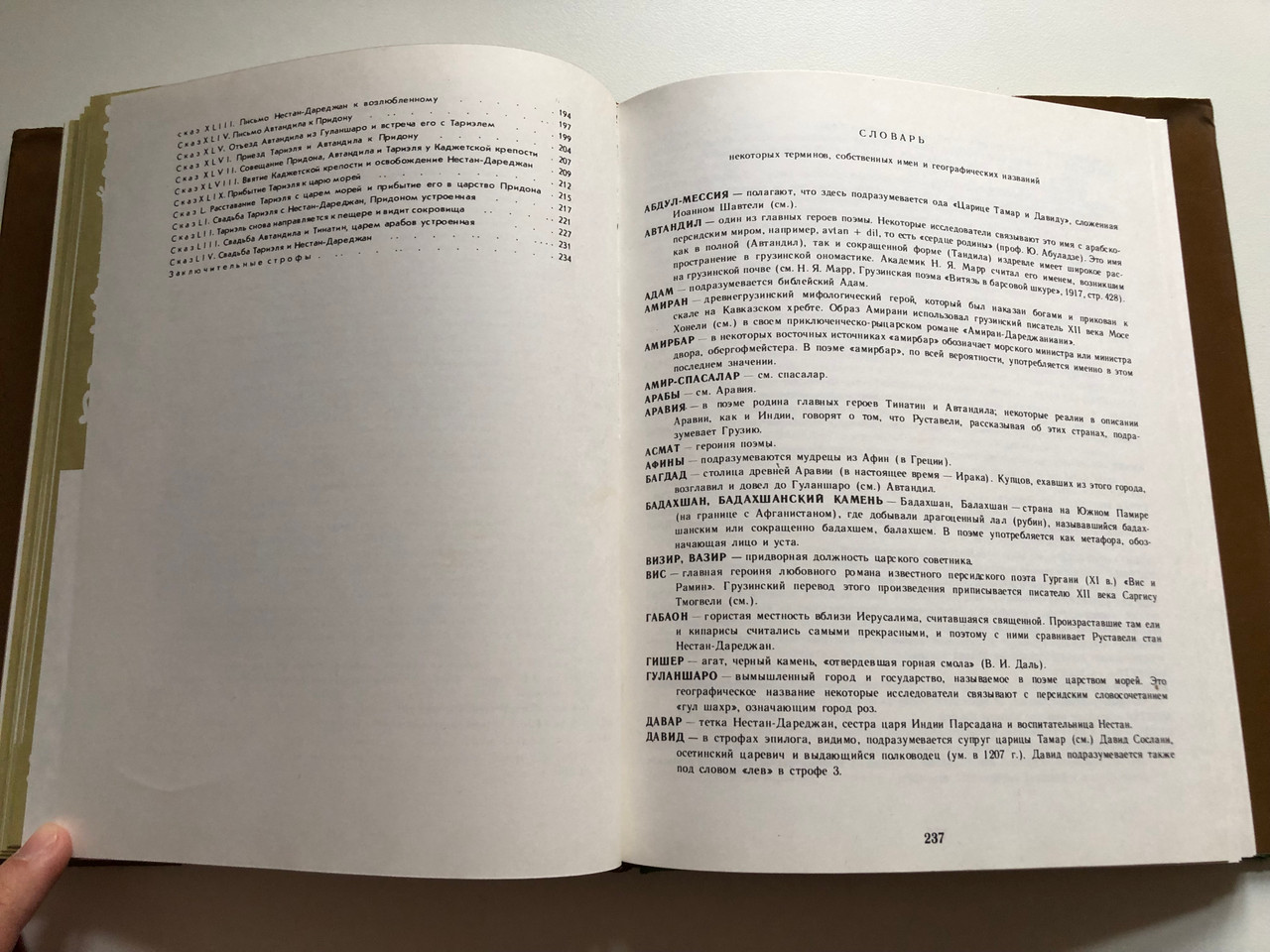


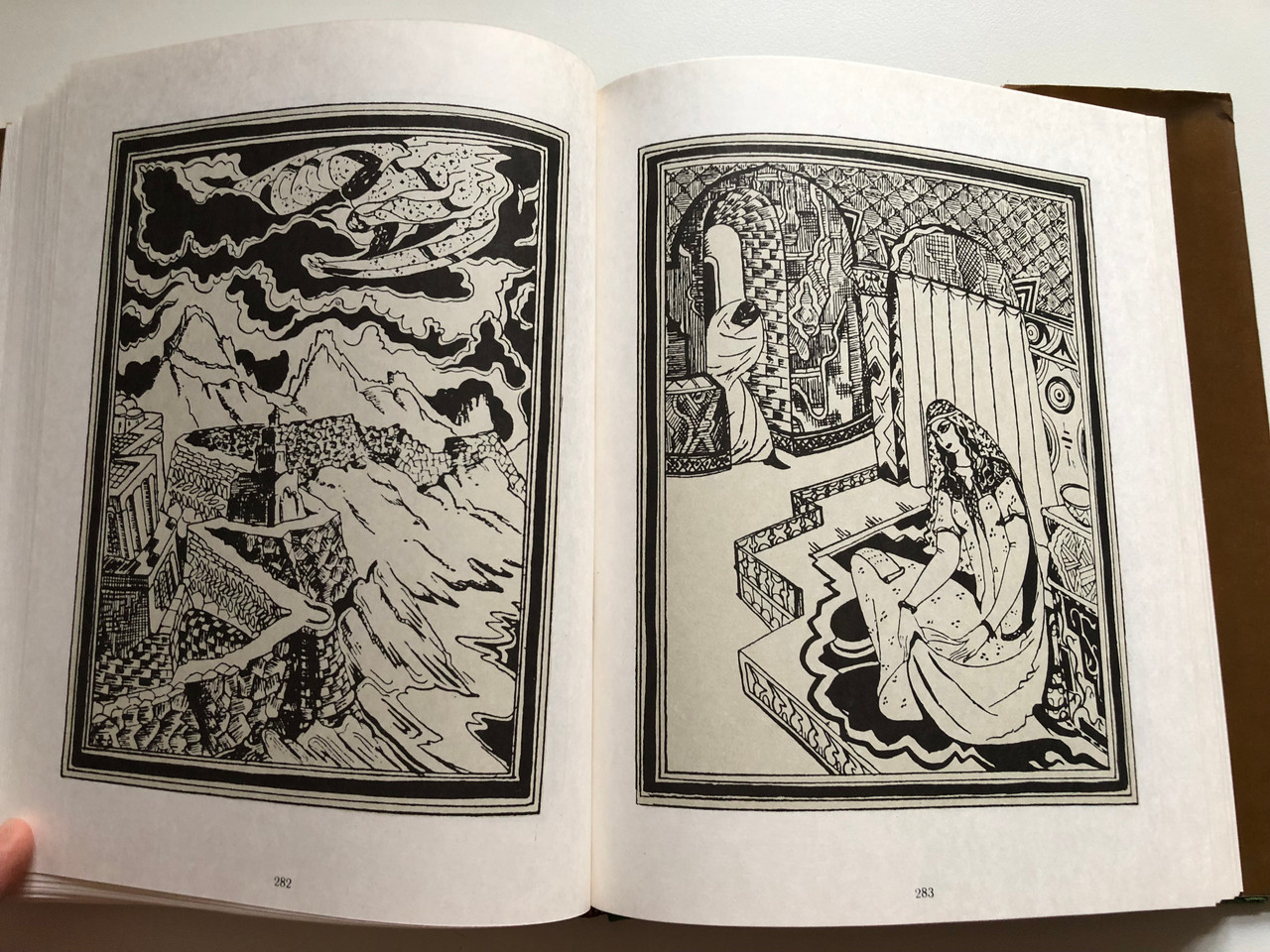


![The Selected Poems of Du Fu [Hardcover] by Du Fu The Selected Poems of Du Fu [Hardcover] by Du Fu](https://cdn11.bigcommerce.com/s-62bdpkt7pb/images/stencil/500x659/products/1807/3494/1__11162.1462823198.JPG?c=2)
